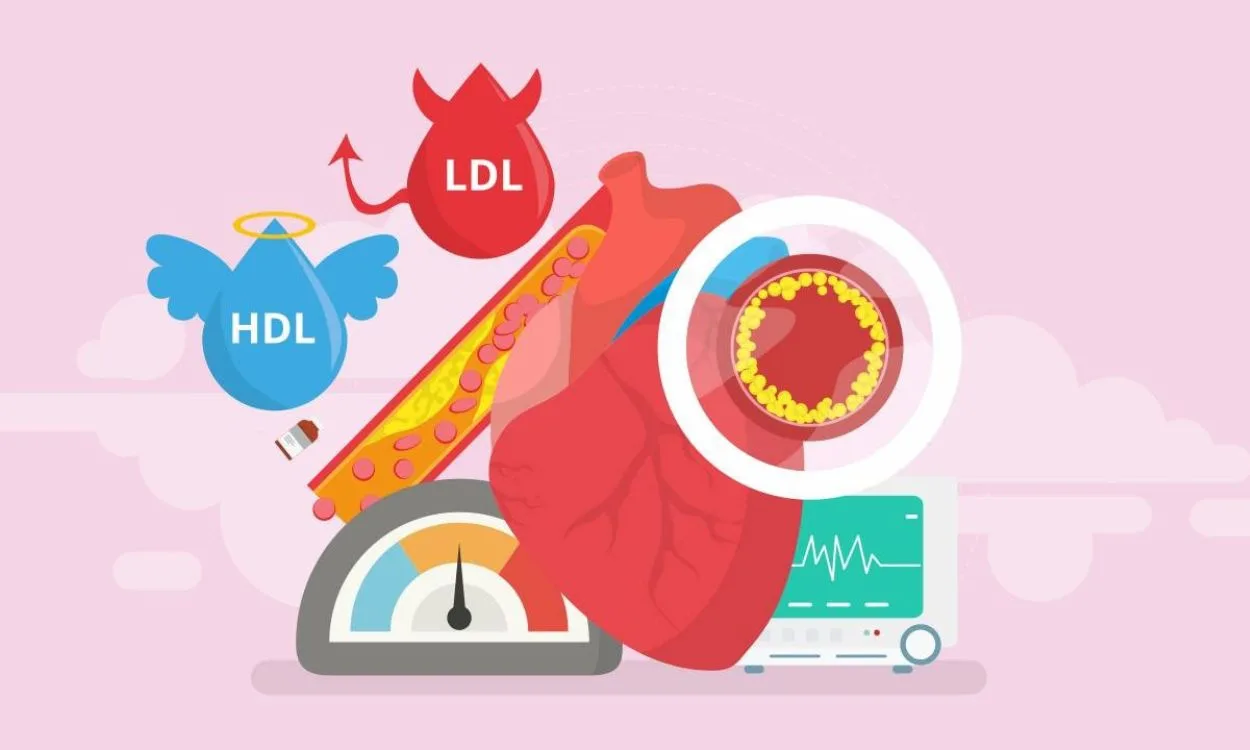What are Triglycerides?
- Triglycerides are a type of fat found in the blood that is used as a source of energy.
- They are formed from the food we eat and can also be produced by the body.
- High levels of triglycerides in the blood can increase the risk of heart disease and other cardiovascular problems.
Connection between Triglycerides and Heart Health
1. Risk Factor for Heart Disease
- Elevated levels of triglycerides are associated with a higher risk of developing heart disease.
- This is because high levels of triglycerides can contribute to the buildup of plaque in the arteries, leading to atherosclerosis.
2. Impact on Cholesterol Levels
- Triglycerides are often measured along with cholesterol levels as part of a lipid panel.
- High levels of triglycerides are often accompanied by low levels of “good” HDL cholesterol, which further increases the risk of heart disease.
3. Influence on Blood Vessels
- Triglycerides can affect the function of the endothelium, the inner lining of blood vessels, leading to reduced flexibility and increased susceptibility to damage.
- This can contribute to the development of hypertension and other cardiovascular issues.
Managing Triglycerides for Heart Health
1. Healthy Diet
- Consuming a diet low in saturated and trans fats, and rich in fruits, vegetables, whole grains, and lean proteins can help lower triglyceride levels.
- Limiting the intake of sugar and refined carbohydrates is also beneficial.
2. Regular Physical Activity
- Engaging in physical exercise, such as brisk walking, swimming, or cycling, can help lower triglyceride levels and improve overall heart health.
3. Weight Management
- Maintaining a healthy weight through a combination of diet and exercise is crucial for managing triglyceride levels.
4. Avoiding Excessive Alcohol Consumption
- Limiting alcohol intake can help lower triglyceride levels, especially for individuals with high triglycerides.
5. Medical Intervention
- In some cases, medication may be prescribed by a healthcare professional to lower triglyceride levels, especially if they are significantly elevated and lifestyle changes alone are not sufficient.
Fitpaa’s Role in Heart Health
1. Personalized Fitpaa Capsule
- Through metabolism assessment and personalized guidance, Fitpaa helps individuals manage their triglyceride levels and overall heart health.
2. Lifestyle Modification
- Fitpaa’s approach incorporates lifestyle medicine and behavioral therapy to address underlying factors contributing to high triglyceride levels.
3. Real-Time Guidance
- Fitpaa’s real-time guidance technology assists individuals in following a heart-healthy lifestyle, including diet management and regular physical activity.
4. Monitoring and Support
- Fitpaa’s comprehensive support system includes regular reviews by a team of healthcare professionals to ensure progress and address any challenges in managing triglycerides and improving heart health.
For individuals in India looking to take control of their heart health and manage triglyceride levels effectively, Fitpaa offers a personalized and holistic approach to achieving and maintaining optimal heart health. With the support of a dedicated team and innovative technology, Fitpaa empowers individuals to prioritize their cardiovascular well-being and live a heart-healthy lifestyle.









